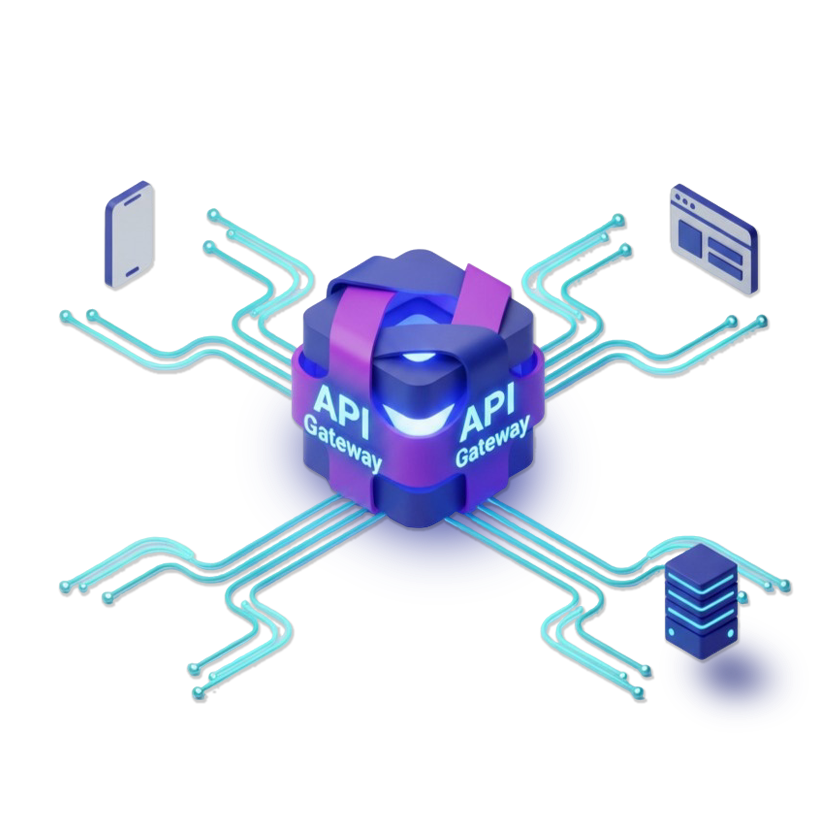Measurable Impact with Every SMS Sent
Integrate With Any Platform
Our flexible RESTful SMS API is designed for quick integration. We provide comprehensive documentation and support for popular programming languages and seamless connectivity with marketing platforms like WebEngage, MoEngage, and CleverTap.





Built for Unmatched Scalability
Our SMS gateway is engineered on an auto-scaled cloud infrastructure, trusted to handle over 4 billion messages monthly. Whether you’re a startup or a large enterprise, our platform scales with you, ensuring consistent performance and delivery during peak traffic periods.
Our SMS Gateway API Features

RESTful API Architecture

Webhook Support

Number Masking

Alphanumeric Sender ID


Real-time DLRs

Multi-Language SDKs

Unicode & Long SMS

Comprehensive Docs
Experience a powerful yet simple SMS service designed to provide developers with the flexibility and control needed to build exceptional communication experiences.
As a leading SMS gateway provider, we focus on delivering a seamless developer experience, from quick onboarding and integration to reliable performance and dedicated technical support when you need it.
Quick Integration
Get up and running in minutes with our clear documentation and code samples for all popular programming languages.
Reliable Delivery
Leverage our high-priority routes and direct carrier connections for fast and dependable message delivery every single time.
Transparent Reporting
Track the status of every message in real-time with detailed delivery reports (DLRs) delivered directly via webhooks.
Dedicated Support
Our expert technical support team is available to help you troubleshoot and optimize your integration for the best results.
Why Developers Choose Our SMS Platform
High-Performance Routes
Our intelligent routing engine and direct carrier partnerships ensure your critical messages are delivered with minimal latency.
Guaranteed Platform Uptime
Rely on our 99.95% uptime SLA. Our robust infrastructure provides the stability your application needs for mission-critical communications.
Enterprise-Grade Security
Build with confidence on our SOC2-certified platform, ensuring the highest standards of data security and privacy for your users.
SMS API & Gateway FAQs
Getting your API key is a simple and straightforward process. Once you sign up for an account on the Times Mobile platform, you can navigate to the developer or API settings section in your dashboard. Here, you will be able to generate your unique API key and secret. This key is essential for authenticating your requests and securing your integration. We recommend storing your API key securely and never exposing it in client-side code. Our comprehensive documentation provides clear, step-by-step instructions on how to generate and use your key for making your first successful API call.
Delivery Reports, or DLRs, are real-time status updates for every SMS you send through our SMS gateway API. They tell you if a message was successfully delivered, failed, expired, or is still pending. To receive DLRs, you can configure a webhook URL in your dashboard. Our platform will then automatically send a POST request with a detailed payload (including message ID and status) to your specified URL as soon as the status changes. This allows you to build a resilient application, track message status programmatically, and get transparent insights into your SMS delivery performance.
Yes, our RESTful SMS API is designed to be language-agnostic, meaning you can integrate it using any programming language that can make HTTP requests. To make the integration process even faster and easier for developers, we provide official Software Development Kits (SDKs) for popular languages like PHP, Python, Java, and Node.js. These SDKs are helper libraries that handle the complexities of authentication and request formatting, allowing you to send an SMS with just a few lines of code, regardless of your preferred tech stack.
Our SMS gateway is designed for high-throughput to support applications of all sizes. The default rate limits are set generously to accommodate most standard use cases for notifications and alerts. However, we understand that large-scale applications may have unique, high-volume requirements. If you anticipate needing a higher sending rate, you can contact our support team. We can work with you to understand your needs and adjust the rate limits on your account to ensure our SMS as a service platform can handle your specific traffic patterns without any throttling.
Securing your webhook endpoint is crucial to ensure that the data you receive is genuinely from the Times Mobile platform. We provide a signing secret in your dashboard that you can use to verify the authenticity of incoming webhook requests. Each request we send to your endpoint includes a unique signature in its header. Your application can then use the signing secret to generate its own signature from the request payload and compare the two. If they match, you can be confident that the request is authentic, protecting your application from forged or malicious requests.
When an SMS fails to deliver, our DLR payload provides a specific error code that gives a clear reason for the failure. Common error codes indicate issues such as an invalid mobile number, the number being temporarily out of service, the recipient’s phone being switched off, or the number being on a DND list for a promotional message. This detailed feedback from our SMS messaging service is invaluable for troubleshooting and for maintaining a clean, valid contact list by identifying and removing numbers that are permanently unreachable.
Currently, the process of Sender ID (Header) registration and approval is managed through our web dashboard to ensure compliance with TRAI’s DLT regulations. You can submit, view the status of, and manage all your Headers in the DLT section of your account. Once a Sender ID is approved, you can then specify it in your API requests to send messages. This separation ensures that all compliance-related activities are handled through a dedicated interface, while the API focuses purely on the functional aspect of sending messages through one of the top SMS platform providers.
Yes, our API supports Number Masking (also known as a proxy service). This feature allows two parties to communicate via SMS without revealing their actual phone numbers to each other. Our platform acts as an intermediary, assigning a temporary virtual number for the conversation. This is widely used in ride-hailing apps, e-commerce platforms, and delivery services to protect the privacy of both the customer and the service provider. You can easily implement this feature using our API to facilitate secure and private two-way communication.
Our SMS gateway fully supports concatenated (long) SMS. When you send a message that exceeds the standard 160-character limit, our platform automatically splits it into multiple smaller parts. It then adds special headers to each part so that the recipient’s mobile device can correctly reassemble and display them as a single, continuous message. You don’t need to handle the segmentation yourself; simply send the full message content in your API call, and our system takes care of the rest, ensuring a seamless experience for the end-user.
We provide comprehensive API documentation that includes detailed explanations of all endpoints, parameters, and potential responses. Within this documentation, you will find ready-to-use code samples and examples for all major functionalities in popular programming languages. These examples are designed to help you get started quickly, whether you’re sending your first message, checking your account balance, or fetching message logs. As your SMS service provider, we are committed to making the developer experience as smooth as possible.





